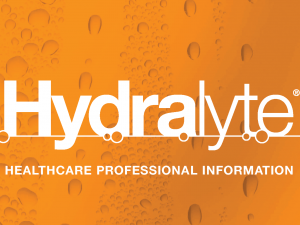Academic pharmacist Nataly Martini provides key information on Helicobacter pylori pathophysiology, diagnosis and evidence-based treatment strategies to enhance patient outcomes
MMR immunisation protects our most vulnerable
MMR immunisation protects our most vulnerable
More than 200 cases of measles have now been confirmed in New Zealand since the start of this year and the Ministry of Health is reminding people that immunisation is the best way to protect our most vulnerable.
Measles is highly contagious and can be life threatening. It has a more than 50% death rate for New Zealand children with low immunity, such as those receiving cancer treatment. Latest statistics from ESR show that 215 cases of measles have been confirmed since the start of the year.
In the under-15 month age group there have been 37 cases, 26 of which required hospitalisation.
"We're working with DHBs and Public Health teams to help stop the spread of this highly contagious virus," says the Ministry of Health's Director of Public Health Dr Caroline McElnay.
"There have been 115 confirmed cases of measles in Auckland this year and it's important we protect the most vulnerable in our communities. We're recommending that all one year old children in Counties Manukau, Auckland and Waitemata DHBs receive their first MMR early. This means bringing forward the 15 month immunisations, which include MMR, to age 12 months in this region. At this stage we're not recommending early vaccination before 15 months for children living outside of Auckland who may be travelling to Auckland.
"In other parts of New Zealand we're working to ensure that our national immunisation schedule continues on track. It's important that all children receive their free routine MMR immunisations on time at 15 months and 4 years of age," says Dr McElnay.
Nearly half of the current total (99 cases) have been confirmed in the 10-29 year age group. The vast majority of these (87 cases) were in people who were either not vaccinated or whose vaccination status was unknown.
"Teenagers and young adults are least likely to have been immunised as young children. So we're strongly encouraging these groups to check their vaccination history and, if they've never been vaccinated, to get it done. The MMR vaccine is highly effective and it's free for those under 50 years who have not had two documented doses," says Dr McElnay.
There are currently significant measles outbreaks overseas. The World Health Organization estimates that globally, approximately 110,000 people died from measles in 2017 – and most of these deaths were in children under the age of 5 years.
"All cases of measles in New Zealand stem from travellers bringing the disease from overseas. So, if you’re travelling overseas make sure you’re fully immunised against measles before you go. Infants aged 6–15 months travelling to countries with serious measles outbreaks can also be given the MMR vaccine before they travel.
"Because the vaccine's effectiveness is lower for babies under 12 months of age, if they're given the vaccine, they will still need two further doses of the vaccine at 15 months and 4 years for long term protection.
"The first symptoms of measles include a fever, cough, runny nose and sore and watery ‘pink' eyes. These are similar to many cold and flu symptoms. If you’re feeling sick, you should stay away from work, school or public places, to help prevent putting other people at risk.
If you think you have measles, it’s important to call before visiting your doctor to avoid spreading the virus in the waiting room," says Dr McElnay.




